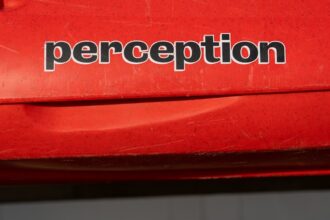Autism, or Autism Spectrum Disorder (ASD), is a complex neurodevelopmental condition that affects how individuals perceive and interact with the world around them. It is characterized by a range of symptoms and behaviors that can vary significantly from one person to another. You may have heard the term “spectrum” used frequently in discussions about autism, and this is because the condition encompasses a wide array of experiences and challenges.
Some individuals may have significant difficulties with communication and social interactions, while others may exhibit exceptional skills in specific areas, such as mathematics or music. Understanding autism requires recognizing that it is not a single disorder but rather a collection of related conditions that share common features.
However, regardless of where someone falls on the spectrum, autism can profoundly impact their daily experiences, relationships, and overall quality of life.
Key Takeaways
- Autism is a neurodevelopmental disorder characterized by challenges with social skills, repetitive behaviors, and communication difficulties.
- Depersonalization Derealization is a mental health condition where individuals feel detached from themselves and their surroundings, often experiencing a sense of unreality.
- There is a potential relationship between Autism and Depersonalization Derealization, as individuals with Autism may be more prone to experiencing depersonalization and derealization symptoms.
- Symptoms of Autism include difficulty with social interactions, repetitive behaviors, and communication challenges.
- Symptoms of Depersonalization Derealization include feeling detached from oneself, experiencing a sense of unreality, and emotional numbness.
What is Depersonalization Derealization?
Depersonalization-derealization disorder (DPDR) is a dissociative condition characterized by persistent feelings of detachment from oneself or one’s surroundings. If you have ever felt as though you were observing your life from outside your body or experienced a sense of unreality regarding your environment, you may have encountered symptoms associated with this disorder. Depersonalization refers to the sensation of being disconnected from your thoughts, feelings, or sense of self, while derealization involves perceiving the world around you as strange or unreal.
This condition can be disorienting and distressing, often leading to significant anxiety and confusion. You might find yourself questioning your identity or feeling as though you are living in a dream. While these experiences can be temporary for some individuals, for others, they can become chronic and interfere with daily functioning.
Understanding depersonalization-derealization is crucial for recognizing its impact on mental health and well-being.
The Relationship Between Autism and Depersonalization Derealization

The relationship between autism and depersonalization-derealization is an area of growing interest among researchers and mental health professionals. You may wonder how these two seemingly distinct conditions could be connected. Some studies suggest that individuals with autism may be more prone to experiencing dissociative symptoms, including depersonalization and derealization.
This could be due to the heightened sensory sensitivities and social challenges often associated with autism, which may lead to feelings of overwhelm and disconnection. For you, navigating a world that feels overwhelming can sometimes trigger dissociative experiences as a coping mechanism. When faced with intense emotions or sensory overload, your mind might resort to detachment as a way to protect itself from distress.
Understanding this relationship can help in developing effective treatment strategies that address both autism and depersonalization-derealization symptoms.
Symptoms of Autism
| Symptom | Description |
|---|---|
| Communication difficulties | Challenges in verbal and non-verbal communication |
| Social challenges | Difficulty in understanding and engaging in social interactions |
| Repetitive behaviors | Engaging in repetitive movements or actions |
| Sensory sensitivities | Heightened or reduced sensitivity to sensory stimuli |
| Difficulty with change | Struggling with changes in routine or environment |
The symptoms of autism can manifest in various ways, making it essential to recognize the diverse experiences individuals may have. You might notice that some common signs include difficulties in social communication, such as challenges in understanding nonverbal cues or maintaining conversations. Individuals with autism may also struggle with forming and maintaining relationships, leading to feelings of isolation or loneliness.
In addition to social challenges, you may observe repetitive behaviors or restricted interests in individuals with autism. These behaviors can range from engaging in specific routines to having intense focus on particular topics or activities. While these traits can sometimes be viewed negatively, they can also represent unique strengths and talents.
Recognizing the full spectrum of symptoms is crucial for fostering understanding and support for those on the autism spectrum.
Symptoms of Depersonalization Derealization
Symptoms of depersonalization-derealization can be perplexing and distressing for those who experience them. You might find yourself feeling detached from your thoughts or emotions, as if you are observing yourself from a distance. This sensation can lead to confusion about your identity and a sense of disconnection from your own body.
Additionally, you may experience derealization, where your surroundings seem distorted or unreal, making it challenging to engage fully with the world around you. These symptoms can vary in intensity and duration, with some individuals experiencing brief episodes while others may face chronic feelings of detachment. You might also notice that stress, anxiety, or trauma can exacerbate these experiences, leading to a cycle of distress that can be difficult to break.
Understanding these symptoms is vital for recognizing when professional help may be needed.
Diagnosis and Treatment of Autism

Diagnosing autism typically involves a comprehensive evaluation by a team of professionals, including psychologists, psychiatrists, and speech therapists. If you suspect that you or someone you know may be on the autism spectrum, seeking an assessment is an important first step. The diagnostic process often includes interviews, behavioral observations, and standardized assessments to gather information about social communication skills and repetitive behaviors.
Treatment for autism is highly individualized and may include various therapeutic approaches tailored to meet specific needs. You might find that behavioral therapies, such as Applied Behavior Analysis (ABA), can help develop social skills and reduce challenging behaviors. Additionally, speech therapy can assist with communication difficulties, while occupational therapy may address sensory sensitivities.
Support from family members and caregivers is also crucial in creating an environment that fosters growth and development.
Diagnosis and Treatment of Depersonalization Derealization
Diagnosing depersonalization-derealization disorder involves a thorough assessment by a mental health professional who will evaluate your symptoms and their impact on daily functioning. If you are experiencing persistent feelings of detachment or unreality, it is essential to seek help from a qualified therapist or psychiatrist who understands dissociative disorders. They will likely conduct interviews and use standardized questionnaires to determine the severity and frequency of your symptoms.
Treatment for depersonalization-derealization often includes psychotherapy as the primary intervention. Cognitive-behavioral therapy (CBT) has shown promise in helping individuals manage their symptoms by addressing negative thought patterns and developing coping strategies. Additionally, mindfulness techniques can be beneficial in grounding oneself in the present moment, reducing feelings of detachment.
In some cases, medication may be prescribed to address underlying anxiety or depression that could be contributing to dissociative experiences.
Overlapping Symptoms and Challenges
The overlapping symptoms between autism and depersonalization-derealization can create unique challenges for individuals navigating both conditions. You may find that social difficulties inherent in autism can exacerbate feelings of detachment associated with depersonalization-derealization. For instance, when faced with social situations that feel overwhelming or confusing, you might resort to dissociation as a coping mechanism.
This interplay between symptoms can complicate diagnosis and treatment efforts. Mental health professionals must carefully consider both conditions when developing treatment plans to ensure that all aspects of an individual’s experience are addressed. You might benefit from integrated approaches that target both autism-related challenges and dissociative symptoms simultaneously.
Coping Strategies for Individuals with Autism and Depersonalization Derealization
Coping strategies play a vital role in managing the challenges associated with both autism and depersonalization-derealization. You might find that establishing routines can provide a sense of stability and predictability in your daily life, helping to reduce anxiety and feelings of overwhelm. Engaging in mindfulness practices, such as meditation or deep breathing exercises, can also help ground you in the present moment when experiencing dissociative symptoms.
Additionally, developing strong support networks is crucial for navigating these conditions. Connecting with others who share similar experiences can foster understanding and provide valuable insights into coping strategies that have worked for them. You might also consider seeking professional guidance from therapists who specialize in both autism and dissociative disorders to create personalized coping plans tailored to your unique needs.
Support for Families and Caregivers
Families and caregivers play an essential role in supporting individuals with autism and depersonalization-derealization. If you are a family member or caregiver, understanding these conditions is crucial for providing effective support. Educating yourself about autism spectrum disorder and depersonalization-derealization can help you recognize the challenges faced by your loved one while fostering empathy and compassion.
Creating an open line of communication is vital for building trust within the family unit. Encourage discussions about feelings and experiences related to both conditions without judgment. You might also consider joining support groups for families affected by autism or dissociative disorders to share experiences and learn from others facing similar challenges.
Research and Future Directions
Research into autism and depersonalization-derealization continues to evolve, shedding light on the complexities of these conditions. As our understanding deepens, new treatment approaches are being developed that aim to address the unique needs of individuals experiencing both disorders. You may find it encouraging that researchers are increasingly exploring the neurobiological underpinnings of these conditions, which could lead to more targeted interventions in the future.
Future directions in research may also focus on improving diagnostic criteria to better capture the nuances of overlapping symptoms between autism and depersonalization-derealization. By fostering collaboration between researchers, clinicians, and individuals affected by these conditions, we can work towards creating more effective support systems that enhance the quality of life for those navigating these challenges. In conclusion, understanding autism and depersonalization-derealization requires recognizing their complexities and interconnections.
By fostering awareness, empathy, and support for individuals affected by these conditions, we can create a more inclusive society that values diverse experiences and promotes mental well-being for all.
In recent years, there has been growing interest in understanding the complex relationship between autism and depersonalization-derealization disorder. These conditions, while distinct, can sometimes present overlapping symptoms that challenge both diagnosis and treatment. An insightful article on this topic can be found on Unplugged Psych, which delves into the nuances of these disorders and explores potential therapeutic approaches. For a deeper understanding, you can read more about it by visiting




